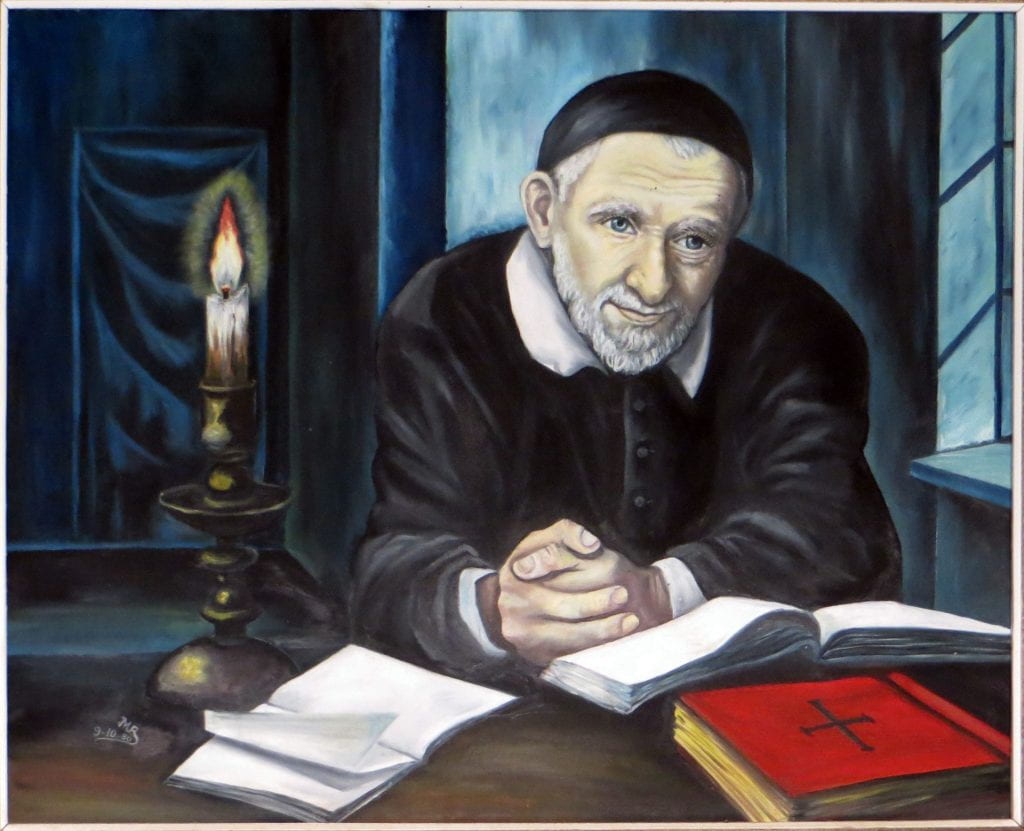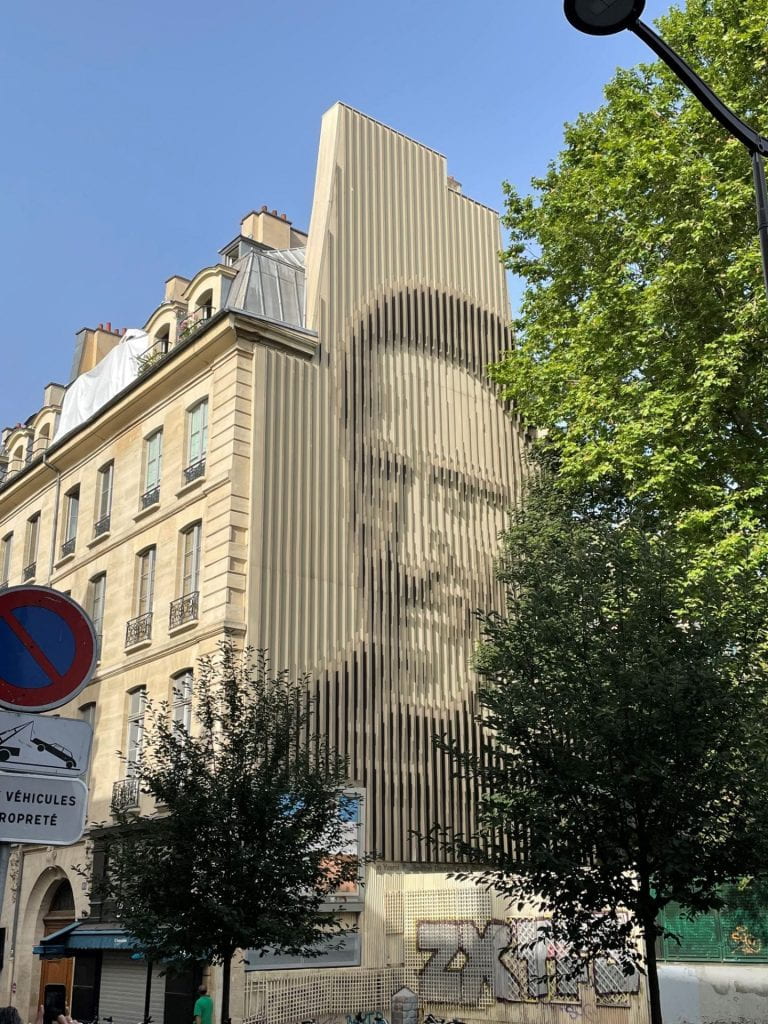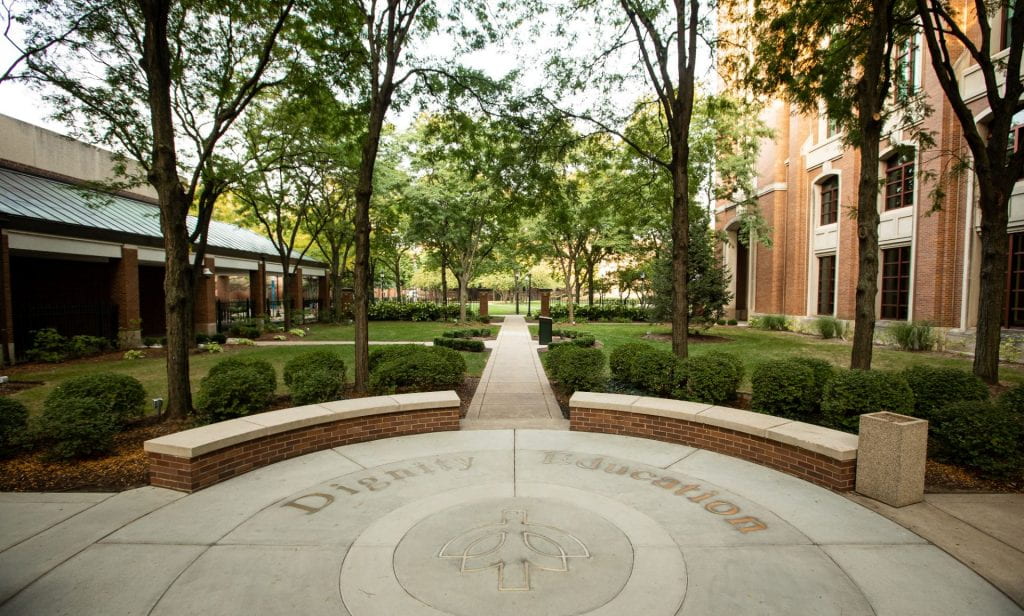
One of the core tenets of our current Designing DePaul framework is Institutional Effectiveness and Vincentian Pragmatism. As evidenced by the questions we have received in the Mission and Ministry office over the past several months, the concept of Vincentian pragmatism is still relatively new or unclear to the DePaul community, even though it leans heavily on what has been commonly assumed and repeated about our mission (and included on the pens we have given out for decades now)—that Vincent de Paul was “pragmatic.” Many seem instinctively to recognize that this concept of Vincentian pragmatism holds something important and proper to our mission, even if they don’t fully grasp what it means.
In terms of the origins of the concept, it seems to date back to a 2012 article by a former DePaul staff and faculty member, Scott Kelley, who identified Vincentian pragmatism as a method for systemic change.[1] For Kelley, this concept clearly drew heavily from the deep well of the 400-year Vincentian tradition and the life and work of our founder and namesake. He was keen to emphasize Vincentian pragmatism as an intentional method or process of discernment rather than a detailed roadmap to arrive at instant clarity about a decision or action.
In a message to the university community for Saint Vincent de Paul Heritage Week in September 2023, “St. Vincent’s Extraordinary Pragmatism,” President Rob Manuel further connected the concept of Vincentian pragmatism to the “essence of St. Vincent de Paul” and to our work of embracing his heritage and legacy through our work today, inviting us to focus on a “mission-centered horizon”; create people-centered approaches; and foster a communal sense of participation, collaboration and innovation.
Earlier in the spring of 2023, a group of faculty had focused on how Vincentian mission informs pedagogy by speaking of it as a way of living and learning in the communal context that reflected similar themes of centering on (mission-related) values; actively involving the collective wisdom of the community; and intentionally cultivating communities of care and inclusion in the creation of what they called “Designing DePaul with Heart.”
Over the past few months, we, the current Vincentian Mission Institute cohort group at DePaul University, have been furthering this concept. We have reviewed related writings and research in our online Vincentian Studies Institute resources and discussed together what a tangible and useful framework for Vincentian pragmatism might look like and mean for DePaul decision-makers and groups. While still in its evolution and development, this framework emphasizes careful attention to the discernment process leading up to decision and action. This includes:
- Making Space for Discernment: showing an intentionality and willingness to “see and reflect” with an honest acceptance of one’s reality and context and proceeding with a “holy indifference”[2] to the path forward. This discernment is born of reflective self-awareness (meditation and prayer) and radical openness (to the presence and movement of Providence).
- Dialoguing and Consulting: demonstrating a commitment to listen deeply and with humility, valuing people and their collaboration and input; to seek out the insights of “wise persons” and the wisdom of the broader community; and to consider the perspectives and needs of those who are most marginalized and disempowered.
- Deciding Responsibly: taking the time necessary to understand complexity, to evaluate pros and cons of possible actions, to interpret and think imaginatively, and to always consider the impact of any decision on those who are most marginalized and disempowered.
- Acting with Solidarity: having the courage to act, to adopt an orientation of service, to advocate creatively for those in need, and to consider sustainability and long-range impact, including bringing others into the work and support of the mission.
We look forward to continuing to develop this concept and to deepening understanding of what it means in practice, but what is clear from each of the above examples is that the adjective Vincentian placed before pragmatism is highly significant. In the United States, while we are clearly influenced by notions of pragmatism that are, at their best, also deliberate and reflective in nature, we are also prone to cultural understandings of the term that can simply reinforce a “just do it” approach that lacks the deeper spiritual roots and communal wisdom called for by the adjective Vincentian.
In the coming months, we will continue to design and move into our future together and to better understand and develop the concept and practice of Vincentian pragmatism in all its richness. In so doing, may we continue to seek to understand and discern together what the adjective Vincentian demands of us, so that we may honor and do justice to the extraordinary heritage and mission to which we are privileged to contribute our lives and work, as so many have before us.
Reflection by: Vincentian Mission Institute, DePaul Cohort 7
GianMario Besana
Stephanie Dance-Barnes
Mark Laboe
Lexa Murphy
DeWayne Peevy
Tatum Thomas
Lucy Rinehart
[1] Scott Kelley, Ph.D., “Vincentian Pragmatism: Toward a Method for Systemic Change,” Vincentian Heritage Journal 31:2 (2012): 41–63. Available at: https://via.library.depaul.edu/vhj/vol31/iss2/2.
[2] For more on the meaning of this concept, see L.642, Louise de Marillac to Anne Hardemont, 20 December 1659, in Spiritual Writings of Louise de Marillac: Correspondence and Thoughts, ed. and trans. Louise Sullivan, D.C. (Brooklyn: New City Press, 1991), 660–661, at: Letters of 1659.








